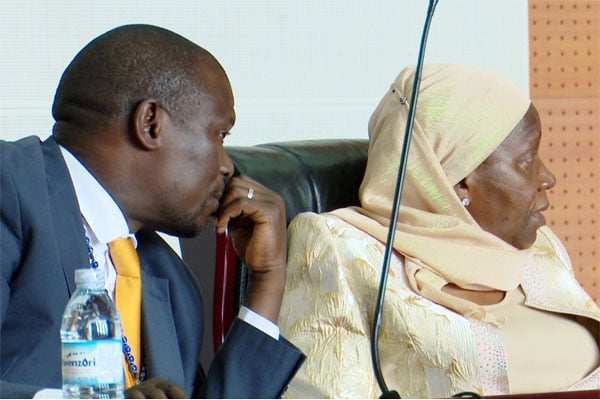NPO terrorist financing risk assessment low - Report

A teller counts money in a banking hall. Banks prefer restricting business relationships with clients falling under NGOs and the related NPOs category over anti-money laundering compliance issues. PHOTO/EDGAR R. BATTE
What you need to know:
- Mr Wandera added that, the NGO Bureau should ensure that the NPO sector develops and implements strong internal controls to improve governance, transparency and accountability.
A new report by Financial Intelligence Authority (FIA) has revealed that terrorism financing risk assessment for Non-Profit Organizations (NPOs) is low.
The report titled, “Money Laundering and Terrorism Financing National Risk Assessment Report for Uganda, May 2023” shows that the threat of terrorism financing is low among NPOs. Examples cited included Non-Governmental Organizations (NGOs), Community Based Organizations (CBOs), Trusts and Faith Based Organizations (FBOs) threat is low.
But the data indicates that inadequacies on the part of government in monitoring the NPOs.
“There is limited regulatory capacity across the relevant competent authorities to undertake Anti-Money Laundering and Countering, Combating the Financing of Terrorism (AML/CFT) risk based supervision of the sector,” the report shows.
It further reveals that, a significant number of NPOs transact using cash, which limits accountability and transparency in the use of funds.
Others are, there is inadequate inter-agency cooperation and information sharing to support the investigation and prosecution of terrorism financing.
There is limited capacity of District NGO Monitoring Committees (DNMCs) and Sub-County NGO Monitoring Committees (SNMCS) to provide oversight on operations of CBOs.
DNMCs and SNMCs are not operational in some districts, while those which are operational are not adequately resourced to conduct their oversight work.
According to the report, there is limited beneficial ownership information on NPOs.
This is attributed mainly to the lack of appropriate legal provisions in the various laws which regulate the NPO sector.
The report also states that NPOs that operate in areas bordering countries of conflict and having active terrorist activities are likely to be more vulnerable to terrorism financing abuse.
While releasing the report, Mr Samuel Were Wandera, Director, Compliance and Training, Financial Intelligence Authority, said FIA and the NGO Bureau should increase combating and financing of terrorism awareness or outreach programs targeting the NPO sector.
He added that there should be a specific focus on those identified as being more vulnerable to terrorism financing abuse to understand the risks they are exposed to and propose mitigation measures.
“Strengthen the institutional capacity of relevant agencies to provide effective oversight function of the NPO sector in matters related to CFT, following a risk-based approach,” he said.
Mr Wandera added that, the NGO Bureau should ensure that the NPO sector develops and implements strong internal controls to improve governance, transparency and accountability.




